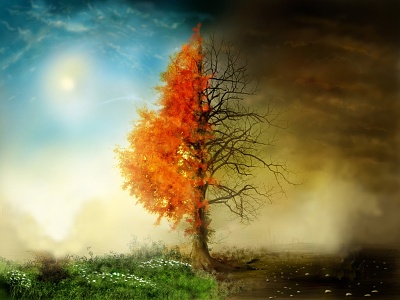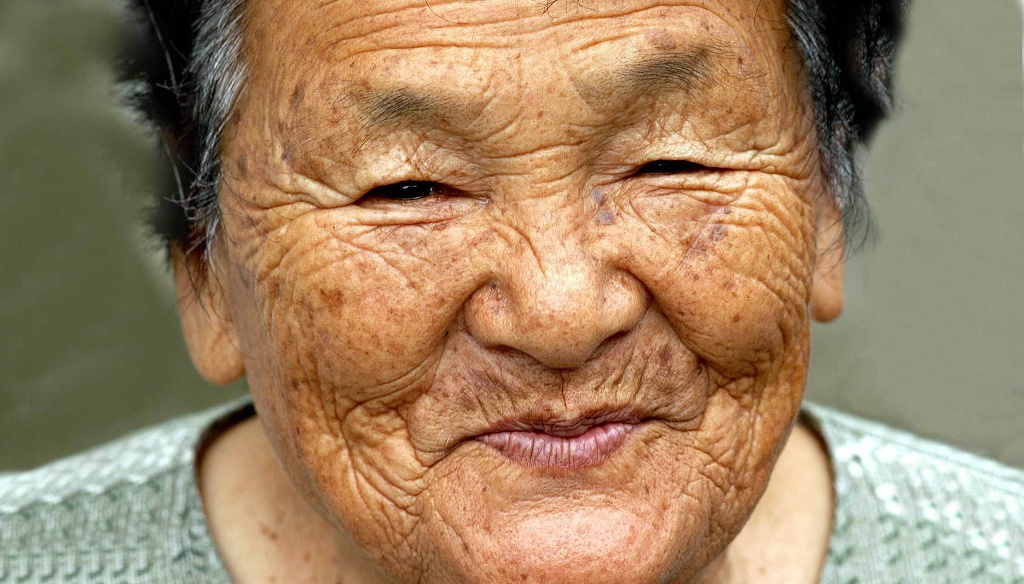| By: Paul S. Cilwa | Viewed: 4/24/2024 Posted: 6/5/2006 |
Page Views: 2491 | |
| Topics: #Metaphysics #Spirituality #Reincarnation | |||
| I ponder the meaning of life, and death. | |||

Our friend, Tallulah, came by for a visit last night, just before she leaves to visit one of her daughters in Kansas. She showed us photos from her previous trip East, including a couple of her sister. Tallulah and her sister were not raised together, and in an attempt to become closer to her, Tallulah spent a six-month visit with her. Although her sister apparently wasn't one of the most likeable people on Earth, Tallulah persisted in attempting to reach her and establish a relationship.
"Now, she's dead," Tallulah said, in some surprise, as she handed me a photo. "I was traveling, and it took three days for the word to get to me."
In another part of the world, my friend and brilliant writer Tim Anderson posted on his blog a photo of some friends who'd visited him a year ago. In a beautiful essay about the passing of friends and the timelessness of candid photos, he says,
The woman pictured above in the pink tank top is a young woman named Melinda…A little over a week ago, Melinda's vehicle was found in the Pend Oreille River…Melinda had been known to push the boundaries of local speed limits and on the night she disappeared it was raining heavily…Sadly her body was finally found in the gates at Boundary Dam, on the Canadian border. Melinda was 24 years old at the time of her death. The two young girls pictured in this photo are her daughters, Kelcy and Rachel. Please keep them and the rest of Melinda's family in your prayers.
It is, of course, a tragedy when a young woman dies, especially one with children. And it's a tragedy when an old woman dies. And it's a tragedy when men and women die in battle, or from disease, or from violence or accident.
Not only is death a tragedy, but it's one that impacts every one of us, sooner or later. If there's anything every one of us have in common, it's that we will, eventually, be touched by death. There's no escaping it. Even a child raised by wolves will, someday, have to face the deaths of his or her foster parents.
But, just because it's a tragedy—and it is—it is bad?
There is a difference between "pretty" and "beautiful". "Pretty" is shallow, ephemeral. Its attractiveness is all on the surface; there's nothing more to see below. "Beautiful" on the other hand, and despite of the truism, is not skin deep; beneath the attractive surface is a wealth of nuance, of subtlety. There you'll find shades of sorrow as well as joy; puzzlement at the sudden change in direction of life's roads; mourning at the loss, not only of friends, but of innocence and certainty and direction, as well as the celebration of new friends, understanding and directions.
Life isn't "pretty." But it is beautiful.

To understand life to this depth does require a degree of spiritual enlightenment, I think. It's hard for me to picture an atheist who could put death into this perspective, which may be why my atheist friends include the most compassionate people I know. For them, death is always a tragedy, the end of a story with no postscript.
I'm not saying death should be embraced or hastened. I would be (and have been) the first to jump in to rescue a person from drowning. In this beautiful game of life, the only way to play it is seriously, trying to keep as many people (pieces) in play at once as possible. But when we fail to rescue someone, or (harder to take) when someone refuses to accept our rescue attempts—we can only sigh and allow events to unfold as they must. To force our rescue on an unwilling victim is not integral. It assumes our knowledge of them and their path, is more complete than their own.
And it assumes that death would be the ultimate tragedy, even greater than imposing our will on someone else.
Bullying someone for his or her "own good" is still bullying.
When my mother became ill last November, her mind was still sharp and we gratefully allowed her to make her own, informed, decisions. She was 93 and we knew we would have to face her death eventually. Some children might have forced her to undergo painful surgery in an attempt to keep from "losing" her, to keep her breathing a few days longer. We did not. As it is, she lived another six months relatively free of pain, even able to make a couple of last trips to Wal-Mart before she finally passed. We, her children, did not regret the manner of her death because she chose it. That ennobled her, and allowed her to die with dignity.
The fact is, every one of us chooses our deaths. If we have "been known to push the boundaries of local speed limits" or insist on smoking cigarettes or drinking heavily or engaging in extreme sports or plopping ourselves down on the couch in front of the TV for days at a time—we have chosen our death.
And I don't know that any of these is a bad choice. I can say that most of them are not right for me, but I can't make that statement for others.
Death is the bookend to a life that began with birth. And the deep emotions a death engenders are not tragic, merely strong. The tears that often result are simply there to clear the way so we can go on, appreciating the other aspects—bright as well as dark—of this beautiful and tragic experience we call life.






